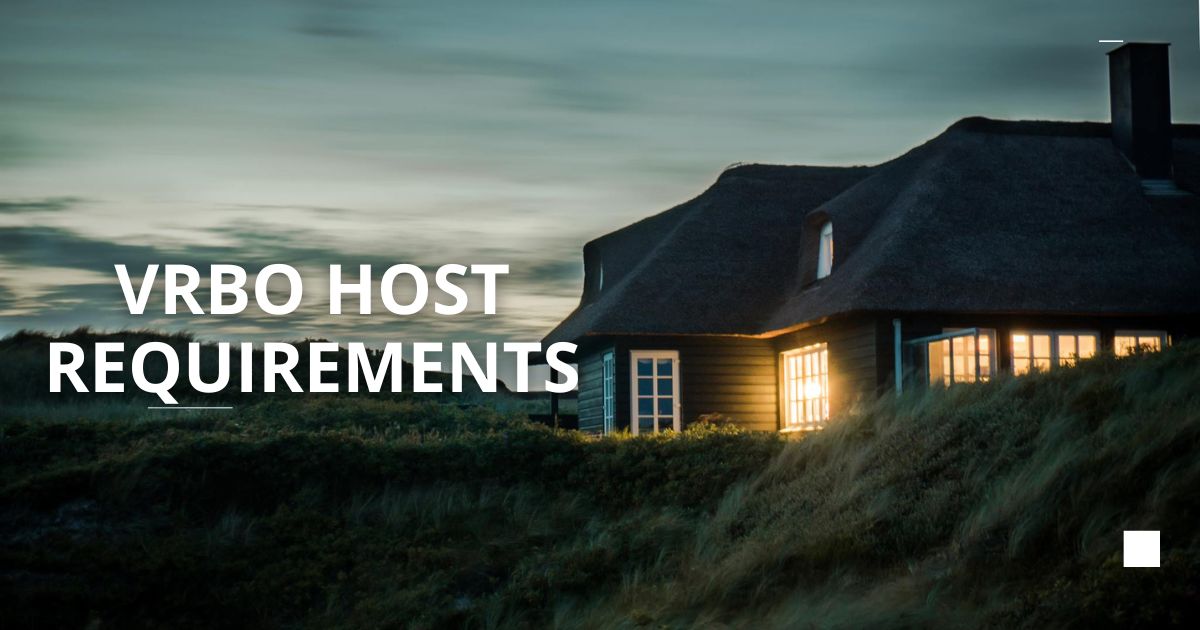Vacation rental platforms like VRBO (Vacation Rentals by Owner) have revolutionized the way homeowners can earn money by renting out their properties. Becoming a VRBO host requires meeting certain requirements and guidelines to ensure a positive experience for both hosts and guests. Whether you’re renting out a spare room, an apartment, or a vacation home, understanding these requirements is essential for success.
Eligibility Requirements for VRBO Hosts
Before listing a property on VRBO, hosts must meet some basic eligibility criteria. These include:
Ownership or Legal Right to Rent – Hosts must either own the property or have permission from the property owner or landlord to rent it.
Compliance with Local Laws – Many cities and regions have specific regulations for short-term rentals. Hosts must ensure they comply with zoning laws, permit requirements, and tax obligations.
Valid Identification – VRBO may require identity verification to confirm the host’s legitimacy.
Listing Requirements for a VRBO Property
VRBO sets specific standards for listing a property to maintain quality and consistency across its platform. Hosts should follow these guidelines:
Accurate Property Description – Listings must provide truthful details about the property, including the number of rooms, amenities, and location.
High-Quality Photos – Clear, well-lit images of the rental space help attract more guests and improve booking rates.
Transparent Pricing – The listing should include all fees, such as cleaning fees, service charges, and security deposits, to avoid hidden costs for guests.
House Rules and Policies – Hosts should clearly outline policies on pets, smoking, check-in/check-out times, and maximum occupancy.
Legal and Regulatory Compliance
VRBO hosts must adhere to local laws and regulations, which may vary by country or state. Key legal considerations include:
Short-Term Rental Permits – Some cities require a license or permit to operate a vacation rental. Hosts should check with their local government for requirements.
Tax Obligations – Rental income is taxable, and hosts may need to collect occupancy taxes from guests. VRBO provides tools to help with tax collection in some areas.
Homeowners Association (HOA) Rules – If the property is within a community with an HOA, hosts must ensure that short-term rentals are allowed.
Guest Safety and Security Standards
To provide a safe and comfortable stay, VRBO requires hosts to meet certain safety standards, including:
Smoke and Carbon Monoxide Detectors – Properties must have functional alarms to ensure guest safety.
Emergency Contact Information – Hosts should provide local emergency numbers and a way for guests to reach them if needed.
Secure Access and Locks – Doors should have reliable locks, and hosts may use keyless entry systems for added security.
VRBO Host Cancellation Policy
VRBO expects hosts to honor confirmed reservations. Frequent cancellations can result in penalties, lower rankings, and even removal from the platform. Acceptable reasons for cancellation include emergencies or safety concerns. Hosts should set a clear cancellation policy for guests, choosing from options like:
Flexible – Full refund if canceled within a set period.
Moderate – Partial refund after a specific cutoff time.
Strict – No refund after a certain date.
Hosting Responsibilities and Guest Expectations
To maintain good ratings and attract more bookings, VRBO hosts should focus on:
Cleanliness – Properties must be well-maintained and cleaned before guest check-in.
Effective Communication – Responding promptly to guest inquiries and providing detailedcheck-in instructions is crucial.
Quality Amenities – Offering essentials such as Wi-Fi, toiletries, linens, and kitchen supplies enhances the guest experience.
Fair and Respectful Treatment – VRBO prohibits discrimination based on race, gender, nationality, disability, or other factors.
Superhost and Premier Host Status
VRBO rewards top-performing hosts with Premier Host status, which comes with benefits like increased visibility and guest trust. To qualify, hosts must:
Maintain a high response rate to guest inquiries.
Receive excellent reviews and ratings from past guests.
Avoid frequent cancellations.
Consistently provide great guest experiences.
Insurance and Liability Coverage
VRBO offers liability insurance to hosts through its Liability Insurance Program (LIP), which provides protection against certain claims related to property damage or guest injuries. However, hoss should still consider additional insurance options such as:
Homeowners Insurance – Some policies cover short-term rentals, but others may require additional coverage.
Short-Term Rental Insurance – Specialized insurance policies can cover damages caused by guests.
Security Deposits – Hosts can require guests to pay a security deposit for potential damages.
Payment and Earnings on VRBO
Hosts earn money by setting their nightly rates and additional fees. VRBO handles payments securely and typically processes payouts within one to two business days after guest check-in. Hosts should consider:
Seasonal Pricing Adjustments – Adjusting rates based on demand can maximize earnings.
Minimum Stay Requirements – Setting a minimum stay duration can help attract longer bookings.
Discounts for Long-Term Stays – Offering weekly or monthly discounts encourages longer rentals.
Common Challenges for VRBO Hosts
While hosting on VRBO can be rewarding, challenges include:
Managing Guest Expectations – Negative reviews can result from unmet expectations or unclear property descriptions.
Handling Maintenance Issues – Hosts must ensure prompt repairs to avoid guest complaints.
Dealing with Difficult Guests – Hosts should have a plan for addressing guest disputes, damages, or rule violations.
Conclusion
VRBO hosts can maximize success by adhering to VRBO’s guidelines, ensuring legal compliance, maintaining high standards, and providing excellent guest experiences, ensuring a positive and profitable hosting experience.















